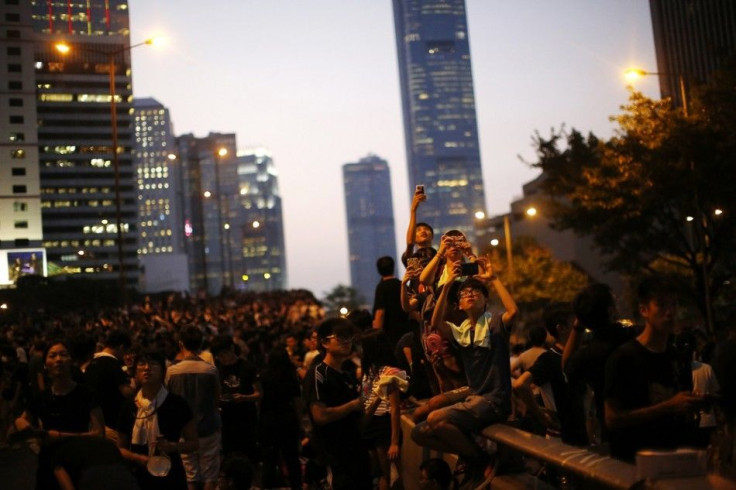Hong Kong Issue: Cameron Says UK Will Stand Up For Protesters' Rights, China Shuts Down BBC in HK

The anti-China, pro-democracy protests in Hong Kong seem to be snowballing into a direct confrontation between the U.K. and China. British Prime Minister David Cameron last Wednesday voiced open support for the protesters in Hong Kong after China launched a heavy crackdown on the protesters.
Hong Kong is a former British colony that was handed back to China in 1997 under a treaty with considerable autonomy to the islanders. The city has been facing student protests for weeks together after China wanted to take away the democratic process in the selection method for Hong Kong's new leader in 2017.
Uphold Anglo-Chinese Pact
Cameron told the British parliament that it was important to ensure that people of Hong Kong enjoyed all freedoms and rights guaranteed in the Anglo-Chinese agreement of 1997, reports Reuters.
Affirming that democracy entails real choices, Cameron said the U.K. places high value to the agreement. Therefore, all the rights and freedoms pertaining to speech, press, assembly, association, travel, movement and strike have to be protected. "These freedoms are guaranteed under a joint declaration and we should stand up for it," Cameron declared.
Concerns were out following a video footage in social media showing police excesses on the protesters. It sparked outrage among the British lawmakers and public.
Despite China's crackdown, there has been no let up in the protests in Hong Kong. Last Wednesday, the semi-autonomous region's police arrested 45 demonstrators and used pepper spray to disperse the mob. Last Tueday night, the pro-democracy campaigners clashed with police, infuriated by the footage of police beating and kicking a handcuffed protester, reported RT.
BBC Website Blocked
Meanwhile, China retaliated by blocking the BBC's website last Wednesday, hours after the video of police assaualt went viral. Reacting to China's gag, BBC director for global news, Peter Horrocks, said it amounted to "deliberate censorship." He said BBC is against all kinds of attempts to restrict free access to news and information.
Britain is already involved in Hong Kong crisis after it established an inquiry in July this year, to verify the pace of democracy and commitments made by China during Hong Kong's transfer to it. However, Hong Kong administration and China maintained that Britain has no business in the island and asked it not to interfere with the election system being established by Beijing.
A Hong Kong official even warned Britain of "unintended consequences" if it meddles with China's election proposals. Rimsky Yuen, justice secretary warned British MPs that any probe by the U.K. will only worsen the protests in Hong Kong.





















